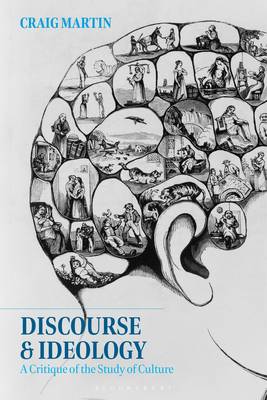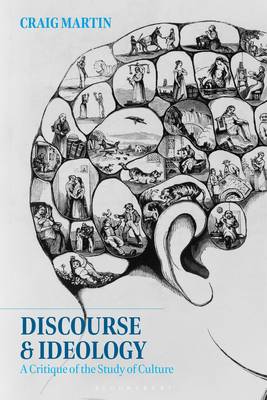
- Afhalen na 1 uur in een winkel met voorraad
- Gratis thuislevering in België vanaf € 30
- Ruim aanbod met 7 miljoen producten
- Afhalen na 1 uur in een winkel met voorraad
- Gratis thuislevering in België vanaf € 30
- Ruim aanbod met 7 miljoen producten
Zoeken
€ 186,95
+ 373 punten
Uitvoering
Omschrijving
Drawing on poststructuralist approaches, Craig Martin outlines a theory of discourse, ideology, and domination that can be used by scholars and students to understand these central elements in the study of culture.
The book shows how discourses are used to construct social institutions-often classist, sexist, or racist-and that those social institutions always entail a distribution of resources and capital in ways that capacitate some subject positions over others. Such asymmetrical power relations are often obscured by ideologies that offer demonstrably false accounts of why those asymmetries exist or persist.
The author provides a method of reading in order to bring matters into relief, and the last chapter provides a case study that applies his theory and method to racist ideologies in the United States, which systematically function to discourage white Americans from sympathizing with poor African Americans, thereby contributing to reinforcing the latter's place at the bottom of a racial hierarchy that has always existed in the US.
The book shows how discourses are used to construct social institutions-often classist, sexist, or racist-and that those social institutions always entail a distribution of resources and capital in ways that capacitate some subject positions over others. Such asymmetrical power relations are often obscured by ideologies that offer demonstrably false accounts of why those asymmetries exist or persist.
The author provides a method of reading in order to bring matters into relief, and the last chapter provides a case study that applies his theory and method to racist ideologies in the United States, which systematically function to discourage white Americans from sympathizing with poor African Americans, thereby contributing to reinforcing the latter's place at the bottom of a racial hierarchy that has always existed in the US.
Specificaties
Betrokkenen
- Auteur(s):
- Uitgeverij:
Inhoud
- Aantal bladzijden:
- 296
- Taal:
- Engels
Eigenschappen
- Productcode (EAN):
- 9781350246294
- Verschijningsdatum:
- 16/12/2021
- Uitvoering:
- Hardcover
- Formaat:
- Genaaid
- Afmetingen:
- 156 mm x 234 mm
- Gewicht:
- 589 g

Alleen bij Standaard Boekhandel
+ 373 punten op je klantenkaart van Standaard Boekhandel
Beoordelingen
We publiceren alleen reviews die voldoen aan de voorwaarden voor reviews. Bekijk onze voorwaarden voor reviews.







